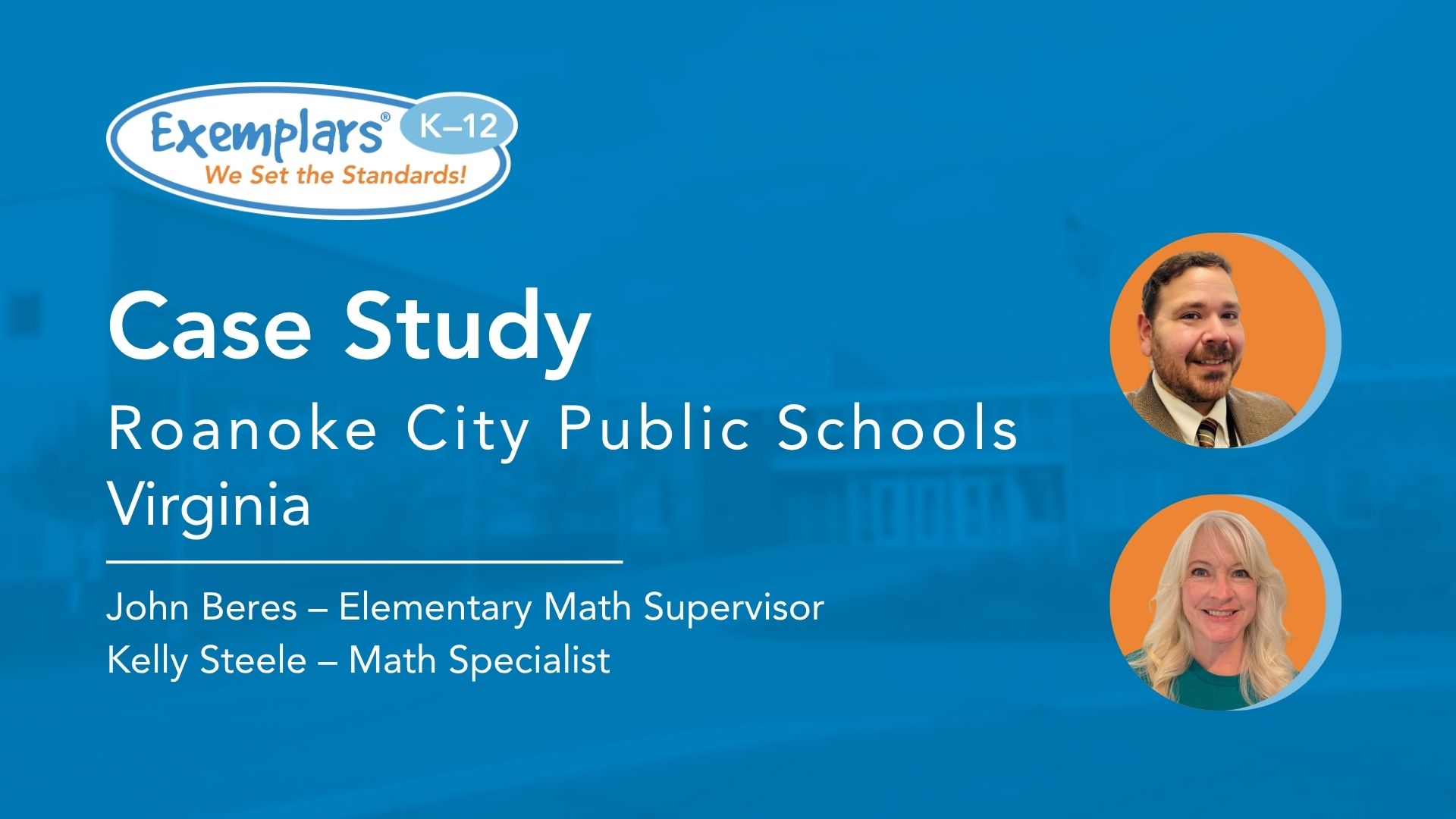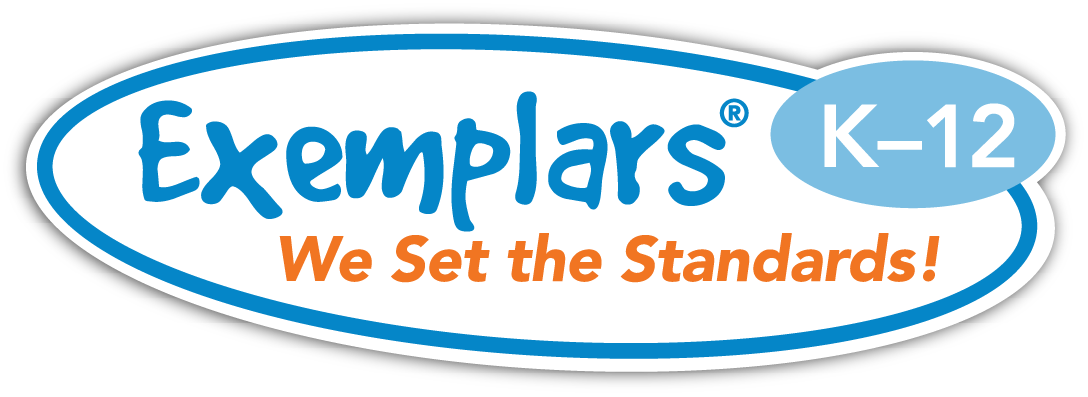Exemplars: A High-Impact, Low-Lift Math Resource
for Virginia Teachers
Exemplars: A High-Impact, Low-Lift Math Resource
for Virginia Teachers

DISTRICT OVERVIEW
Roanoke City Public Schools is an urban school district in southwest Virginia with an enrollment of approximately 14,000 students across 17 K-5 elementary schools. The district focuses on providing authentic learning experiences that emphasize reading, writing, questioning, justifying, and discussion.
CHALLENGE
Roanoke City Public Schools needed an offline math resource to balance the tech-heavy instruction students so often receive in the post-COVID classroom. To address this need, the district sought to pilot a program that would foster independent and flexible thinking, moving away from algorithmic problem solving and overly structured protocols.
RESULTS
The implementation of Exemplars Problem Solving for the 21st Century led to increased student engagement, improved problem-solving skills, and greater teacher comfort with facilitating autonomous student work. The program has been adopted district-wide for the coming school year.
The Challenge
Roanoke City Public Schools recognized the need for a more balanced approach to teaching mathematics that would encourage students to engage in mathematical thinking away from screens. They aimed to find a resource that promoted natural problem-solving and improved student communication and critical thinking skills. Additionally, the district wanted to steer away from algorithmic thinking and teaching and bring math to life in a way that better reflected problem-solving in the real world.
Choosing Exemplars
To address these needs, Roanoke City Public Schools turned to Exemplars Problem Solving for the 21st Century as an ideal solution to their challenge. After considering other options, they selected Exemplars for its performance-based tasks that encourage student autonomy and offline engagement. The district began with a pilot program in three classrooms via the Exemplars Ambassador Program. Teachers quickly saw the benefits.
Pilot teachers noted that students of all learning needs and levels were challenged by different aspects of the program. Additionally, the program's alignment with the Building Thinking Classrooms framework further solidified its value, with Beres stating, “Building Thinking Classrooms ... every single one of his [Peter Liljedahl’s] recommended tasks align with Exemplars and just melds with the program so well.”
The Results
After implementing Exemplars, Roanoke City Public Schools observed a positive shift in student engagement and problem-solving abilities. Students began to approach math tasks with greater confidence and independence, demonstrating improved critical-thinking skills. The initial pilot classrooms reported success, leading to increased interest from other teachers and a decision to adopt Exemplars in K-5 classrooms district-wide. Beres stated,
“There's really no reason to hold back––whether your concerns are pricing or timing or teacher lift, or whatever your concerns might be of a new supplemental piece, Exemplars makes it really approachable.”
Metrics showed a growing trend in usage, with the goal to increase the frequency of Exemplars task use from once a week to the target of three times per week. Math Specialist, Kelly Steele noted, "I feel pretty strongly that we’re going to see a big improvement across the board in terms of problem solving and thinking about math."
“Once they gave one or two of these [tasks] and they saw, ‘Hey, my students can do this. They can be problem solvers.'”
John Beres, Elementary Math Supervisor
School Profile:
Population Density: Dense Suburban*
Size: 13,500 Enrollment*
Math Proficiency: 40%*
Free & Reduced Lunch: 97%*
*Source: niche.com

